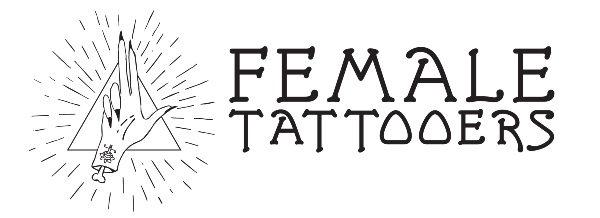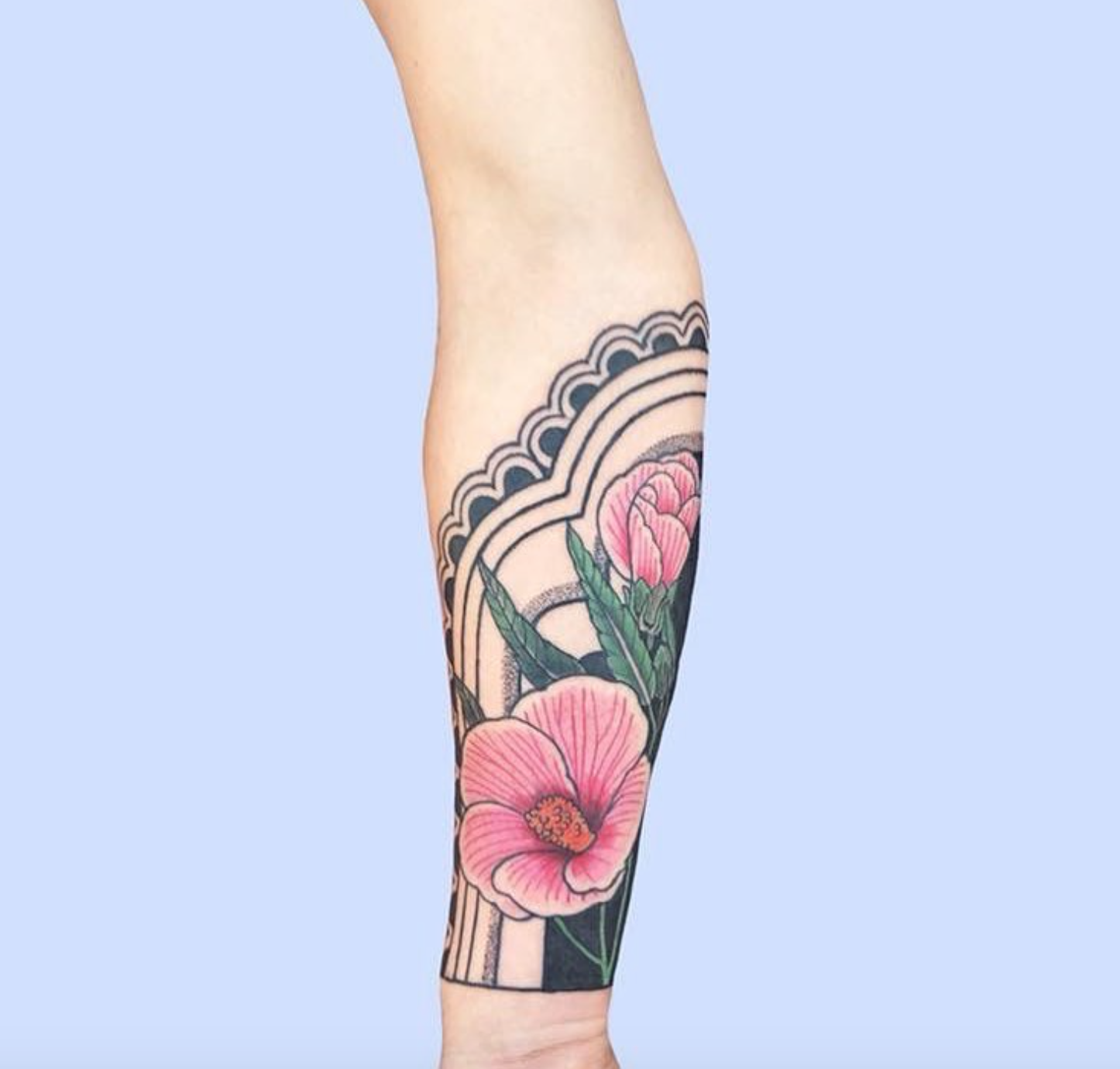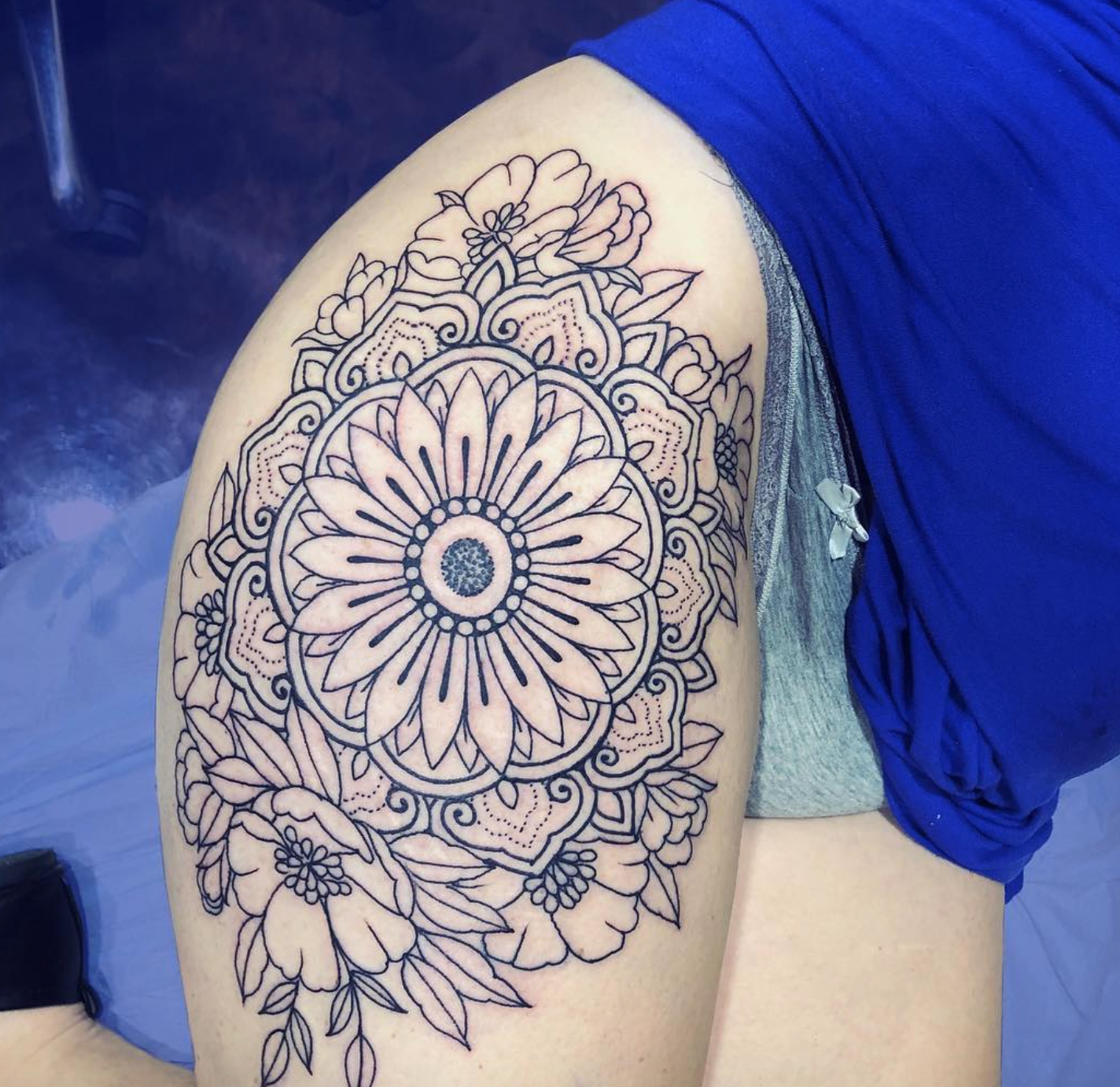Kandace Layne on her Ornamental Designs and Diversity in Tattooing
When Kandace Layne talks about how she decided to pursue a career as a tattoo artist, she credits a lot of her creative abilities to her parents. Both, she says, were artists who surrounded her with inspiration early on.
“My parents made art all of the time, especially my mom,” says Layne. “She would do these really cool African portraits of different ethnic groups with oil pastels.”
When Layne’s parents divorced as she was entering her teenage years, her mother converted to Islam and Layne was raised in a Muslim household.
A Challenging Start to a Tattoo Career
Being the daughter of a Muslim parent presented difficulties, as Layne realized she wanted to tattoo fulltime.
Layne was dedicated to learning the trade from the start. She went to the library after school and rented books out about tattoo culture. She spent hours and hours doing research and eventually decided that a career in the industry was something worth going after.
But not everyone in her family agreed with her decision.
“While my dad was really supportive and kept every drawing I ever made, my mom had conflicting feelings about it because tattooing is haram—against Islam,” she says. “She tried not to be a controlling parent, but when I would come home from my apprenticeship upset about whatever happened that day, she would tell me I should quit.”
But Layne didn’t quit. The now 24-year-old, Atlanta-based tattoo artist started her apprenticeship at City of Ink when she was just 17 years old. Like most tattoo apprenticeships, the experience was grueling and tested her commitment and drive. “My apprenticeship consisted of a shit ton of cleaning, running errands, painting, tracing designs, and trying not to seem like a baby as I was the youngest person there,” she says.
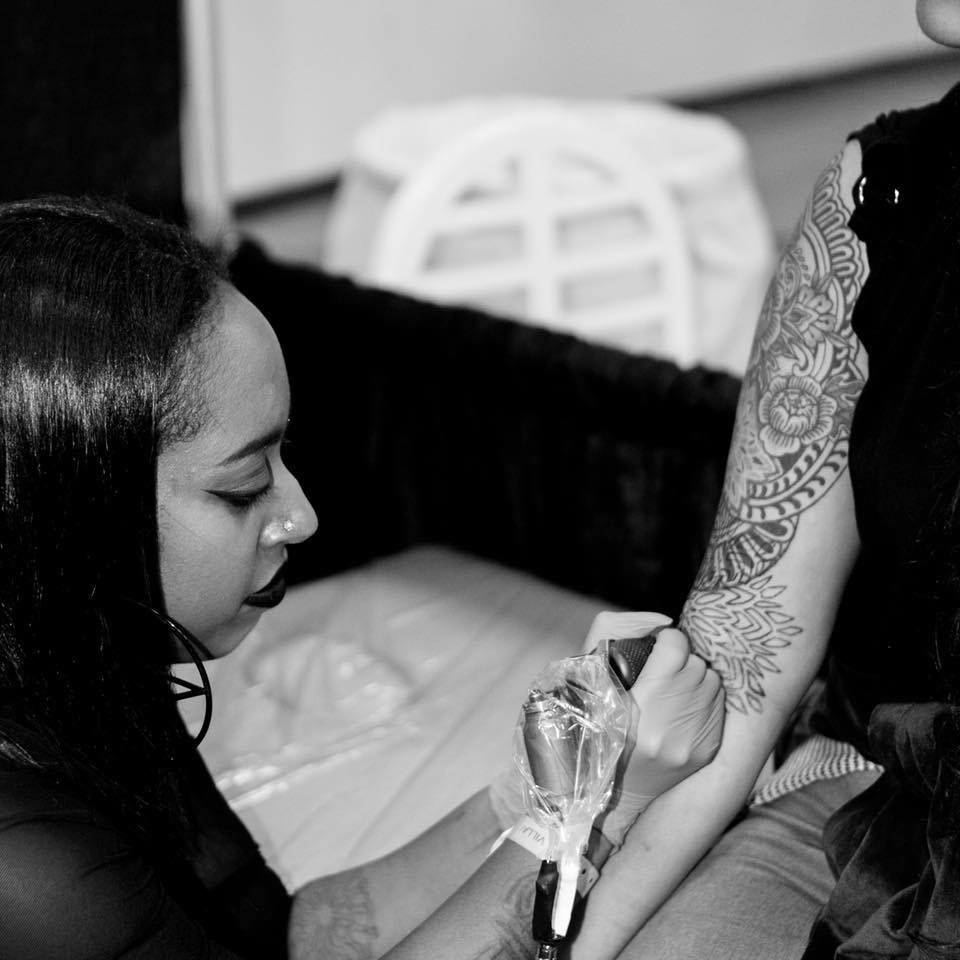
On her 18th birthday, fellow tattoo artists Malia Sioux and Roger Parrilla walked Layne through her first tattoo—a design she inked on herself.
“My apprenticeship was extremely trying, but the artists working there at the time really nurtured me,” says Layne. “I am extremely grateful for the experience, although it was the hardest thing I ever did.”
After two years as an apprentice, Layne started working as a tattoo artist full time. Now, Layne works out of both Joe Vegas’ Thunderbolt Tattoo and The Queen Bee Tattoo Parlour owned by Bethra Szumski and Brandon Simmons.
Layne’s career choice is still something that her mother disagrees with, but Layne says she’s starting to come around. “Now that I’m a few years into tattooing, she seems to be more accepting of it,” she says. “I have a big family and everyone else is extremely supportive.”
Drawing From Her Muslim Upbringing
Layne’s work is intricate and ornamental. She specializes in ornate mandalas and precise geometric designs with thick outlines and heavy blackwork. It’s a style, she says, that is largely inspired by her Muslim upbringing and henna designs.
The influence is evident in her tattoos, where she excels at symmetry, thick lines, beautiful dotwork, and precise pepper shading.
After experimenting with realistic portrait tattoos early in her career, Layne says that she quickly learned that the realism style wasn’t enjoyable for her. So, she decided to focus on work that made her feel fulfilled.
“I grew up doing henna on my friends or watching my mom do it, so it felt right to head in that direction,” says Layne. “It reminds me of a lot of happy times as a kid where I felt grown up and glamorous when my mom would do my henna for me.”
Encouraging Diversity in Tattooing
As a black, female tattoo artist, Layne says she definitely feels encouraged to see more diverse artists and clients represented in the tattoo industry. “I am so excited to see there are a lot more black tattooers and a lot more black people getting tattooed,” she says. “It is beautiful to me.”
Layne still thinks, however, that there’s a disconnect when it comes to the portrayal of black tattoo artists on reality television shows and in the media, and she’d like to see that change. “When other people had their tattoo shows, they were actually centered around tattooing,” says Layne. “When black tattoo artists get a show, they don’t even show the tattoos! That’s super lame to me.”
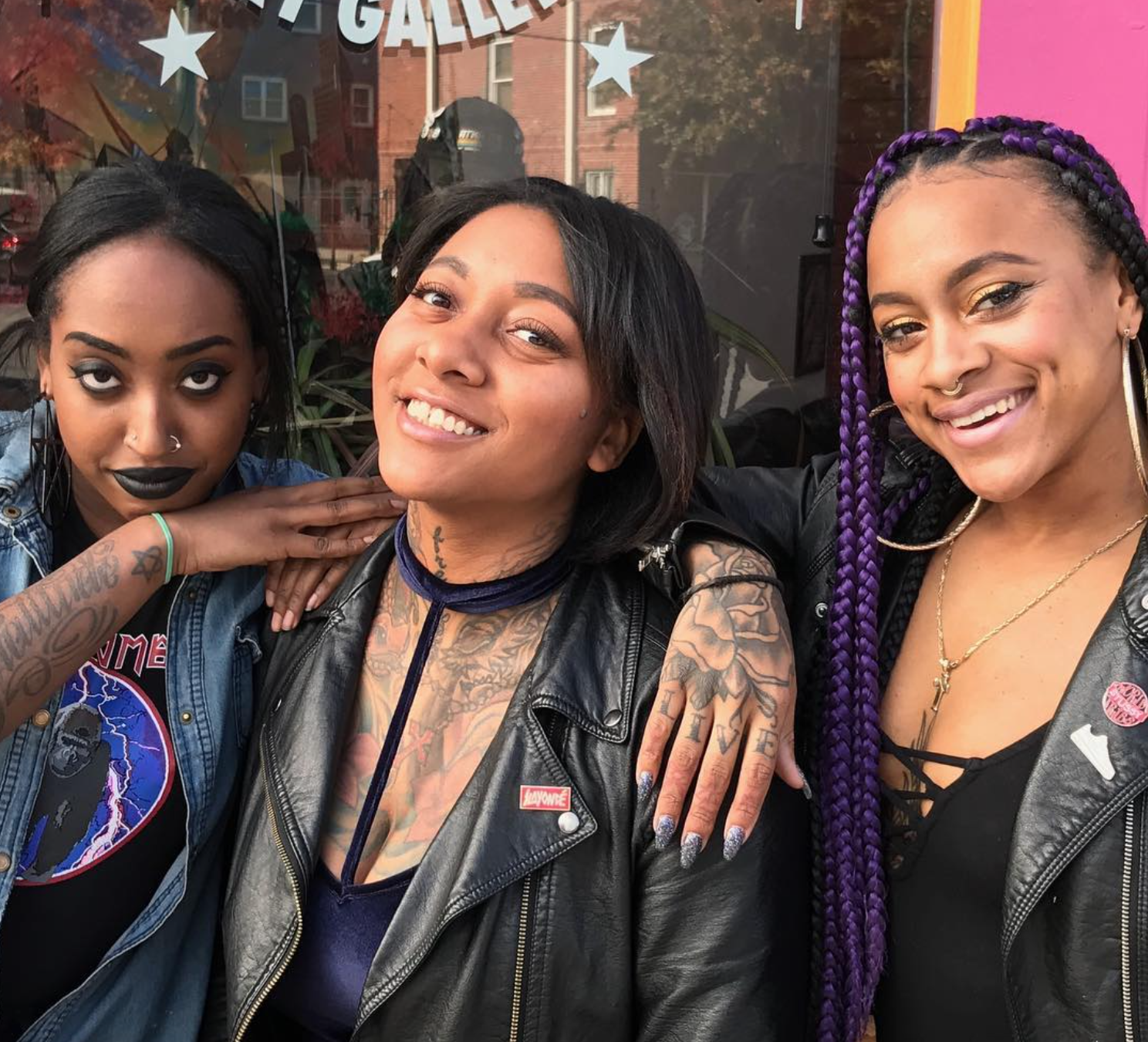
Throughout her career, Layne says that she’s experienced setbacks, challenges, and unwelcome behavior because of her gender and her skin tone. “I’m sure every woman—especially women of color—have stories about being discriminated against,” she says. “I met plenty of other tattoo artists who wouldn’t even look inside my portfolio because I’m a black girl in tattooing or because I worked at a primarily black shop at the time.”
Layne says that the negativity used to bother her, but she’s learned to overcome it and stay focused on her work and surrounding herself with positive people who build her rather than tear her down.
“I have so much love for my clients and other tattoo artists who encourage diversity in tattooing,” says Layne. “I quickly realized that I’m not for everyone and the people that fuck with me, fuck with me.”
